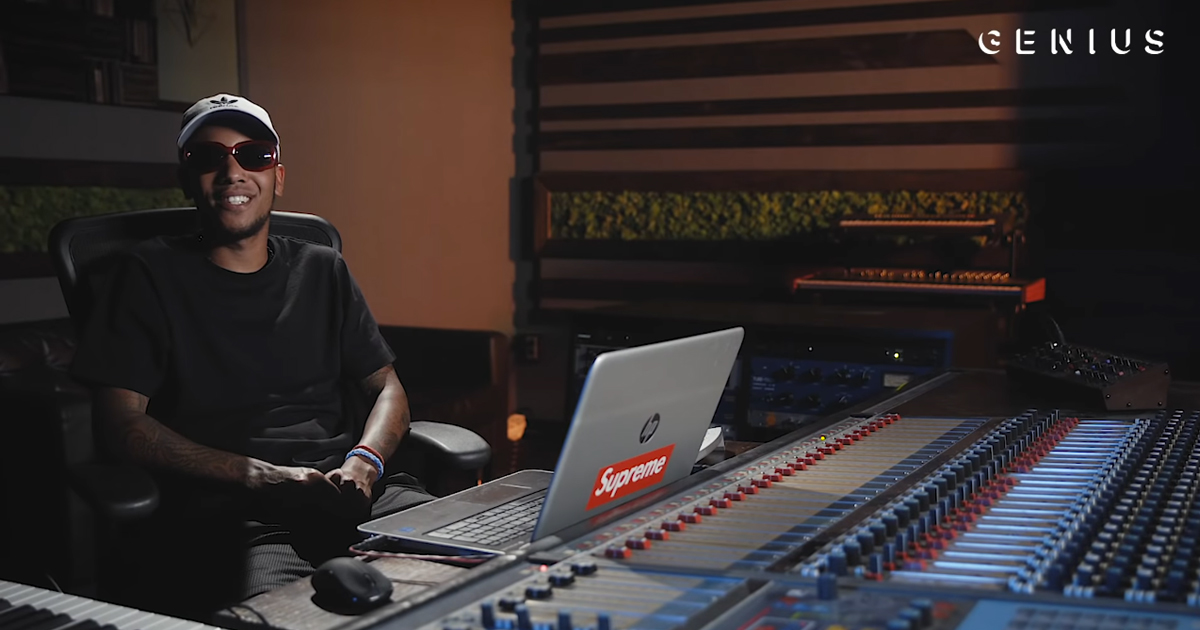

One of its greatest pioneers, however, was 50 Cent, who made a name for himself spitting over other people’s beats on his early mixtapes. Perhaps the most notable application of this idea to hip-hop came in 1999, when Sporty Thievz recycled TLC’s No Scrubs on their parody track No Pigeons. The concept of rapping over other artists’ beats can be traced back to the “version” culture of Kingston, Jamaica, where reggae producers would make an instrumental track, then record multiple vocal interpretations by different artists. We couldn’t reach No ID for comment, but even if we could, we doubt he’d let on. said, ‘Let’s leave a little bit of space,’” Ortiz says. That’s how Ortiz ended up rocking over a perfectly formed version of Control less than 24 hours after the original dropped. Getting hold of a workable version of a beat is usually a case of finding a segment without vocals, then chopping it up and looping it. We got there at about 11 or 12, by two it was finished, and we put it out.” I woke up the next morning, and was like, what the heck is everybody talking about? I heard it at about 9am, and immediately called my engineer, and said, I need you in the studio ASAP. “Control came out in the evening,” Ortiz recalls, “and I didn’t know.

Ortiz’s version, Outta Control, was the first one out.

Big Sean’s 2013 song Control featured an aggressive verse from Kendrick Lamar that inspired plenty of artists to drop responses on the same beat – particularly those who took exception to the Los Angeles-based Lamar claiming that he was the “king of New York”. They have to pick up on the track, write their own version, then record, mix, master and release it, all in an extremely short time.īrooklyn rapper Joell Ortiz is one of the undisputed masters as far as timing is concerned. Hit songs often have a short shelf life, and a rapper who comes late to the party might struggle to get noticed. Now that a hot track can spawn so many versions, speed is crucial. “I pride myself on feeling like I can make a beat for anybody, and that my music can inspire people to make dope songs without me having to guide them.” While not every producer feels the same way – Los Angeles super producer DJ Mustard recently took to Twitter to express his anger at rappers jacking his beats – it’s still a widely-accepted practice. Mississippi rapper and producer Big K.R.I.T has both remade other artists’ music, and had the same thing done to his own work. Jahlil Beats isn’t the only producer to be unfazed by artists reworking his tracks. In any other circumstances doing this kind of thing would earn you a snotty notice from a lawyer. “It’s crazy – this is the first time this has actually happened to me.” “If a DJ plays a freestyle with my beat, I get paid through my Ascap,” he says, referring to the American Society of Composers, Authors and Publishers, which handles royalties. It is the same process that has, in the past, led to multiple versions of Lil Wayne’s A Milli, or Ace Hood’s Bugatti.įor Jahlil Beats, it means money in the bank every time the instrumental is played. For those performers, DIY interpretations offer a chance to rock over instrumentals they might never have been offered. Now that beat has become a true phenomenon, its signal boosted by dozens of artists creating their own versions.
Jahlil beats talk creative process of making beats crack#
I actually put the instrumental out on a mixtape I had, Crack Music 6, and that’s where Bobby found it.”

Hot Nigga was originally made for Lloyd Banks, who released the song under the name Jackpot in 2012. Jahlil, born Orlando Tucker, is one of those fast-talking, constantly moving producers who push out hundreds of beats a year.


 0 kommentar(er)
0 kommentar(er)
